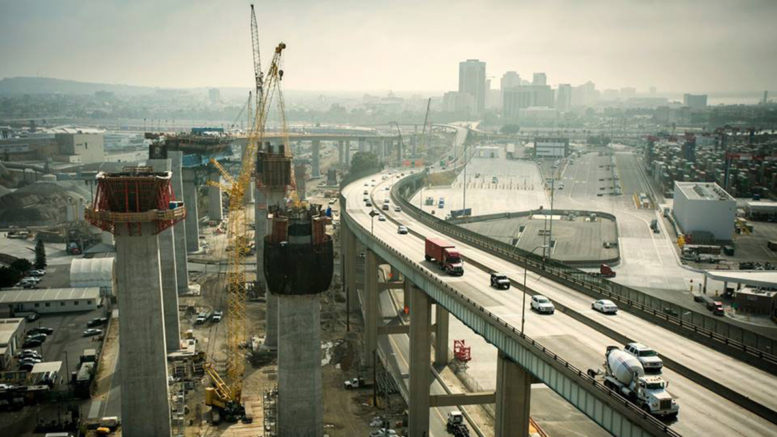ConDig (29-July-19). Leaders of the US construction industry have welcomed a newly introduced, bipartisan Senate plan aimed at revamping the country’s creaking infrastructure.
The bill, introduced by Senators John Barrasso and Tom Carper, authorizes $287 billion from the Highway Trust Fund over five years to repair the country’s roads and bridges. Of the total, $259 billion – or over 90% – would be distributed to states by formula.
Stephen E. Sandherr, chief executive officer of the Associated General Contractors of America (AGC), described the planned legislation, named America’s Transportation Infrastructure Act, as a “critical first-step”.
“It is significant that the proposed measure includes a substantial, and much-needed, boost in funding to repair clogged highways and aging bridges. But the measure also includes many thoughtful improvements to surface transportation policy that evolve a 20th century program into something more appropriate for today’s transportation needs,” he said.
“Among the important policy changes being proposed are measures to speed up federal reviews and permitting for needed new transportation projects. The proposal also includes needed new workforce development measures that will help attract a new generation of Americans into high-paying construction careers.”
The bill proposes a 2-year goal for completion of environmental reviews; a 90-day timeline for related project authorizations; a single environmental document and record of decision to be signed by all participating agencies and an accountability and tracking system managed by the Secretary of Transportation.
It also provides flexibility to the Department of Transportation (DOT) during the environmental review process, allowing the agency to set a schedule for projects and limiting a possible extension request for other participating agencies to only one year.
In addition, the bill requires the Secretary to provide a list of categorical exclusions applicable to highway projects to regulatory agencies and directs those agencies to publish a notice of proposed rulemaking to adopt relevant categorical exclusions within one year.
The legislation has earmarked over $6 billion over five years, including $3.3 billion from the Highway Trust Fund, for a competitive bridge program to address the backlog of bridges in poor condition nationwide. Around $100 million has also been ring fenced for new and innovative construction technologies for smarter, accelerated project delivery.
“While we continue to evaluate the broader proposal, this measure clearly deserves timely consideration within the Senate. Moreover, it should provoke similar action out of the House. That is why this association supports the measure and will urge both houses of Congress to take advantage of its introduction to make meaningful progress on passing a bipartisan, bi-cameral highway and transit bill as soon as possible,” said Sandherr.
Despite cross party support, there are still question marks hanging over how Congress will find a way to pay for it.
Barrasso spokeswoman Sarah Durdaller was reported as saying that the Wyoming senator would meet with Senate Finance Committee chairman Chuck Grassley, who heads the committee overseeing how to fund the bill, “to discuss how to pay for the legislation responsibly.”
In a joint statement, Senators John Barrasso and Tom Carper said that by investing $287 billion in the road systems, the legislation was the most substantial highway bill in history.
“Ninety percent of that money would automatically go to states, so every community can have its needs met in red states and blue states alike,” they said.
“America’s economy relies heavily on the nation’s roads and bridges. In 2015 alone, the US transportation system moved a daily average of about 49 million tons of freight worth more than $52 billion.”
In April, President Donald Trump and Democratic leaders agreed to spend $2 trillion on infrastructure, but further talks have failed to materialize after Trump canceled follow-up meetings following congressional investigations.
